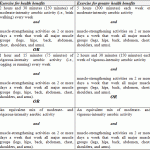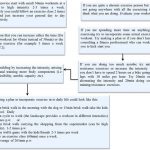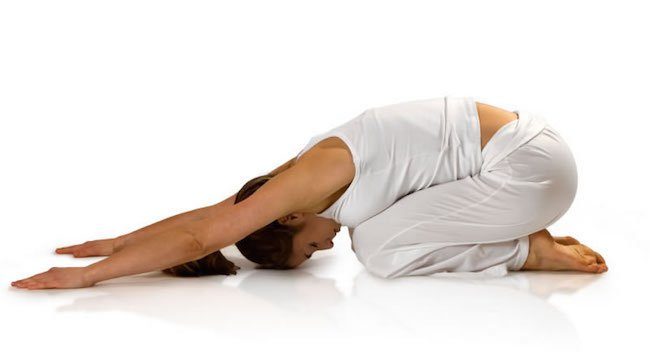
Sometimes taking on exercise is a lot more complicated than it seems. Making that decision to start and making the commitment to continue is hard enough on its own let along the rest. Even if you do get there, then it is all the questions about what type of exercise you should follow, how intense, what time and for how long. Going to the gym and getting good fitness or weight loss results is usually connected with the ‘no pain no gain’ belief. So I am not surprised that people can actually go and spend hours sweating and fighting with weights and machines. Do you really need to do all that or could you have got away with and even get better results with shorter workouts?
For those who have other commitments like work and family or struggling to enjoy the whole exercising thing, wouldn’t be heaven to make exercising life easier?
Working out for weight loss
Exercise 60-90 minutes per day and lose weight
Some studies recommend that in order to lose weight workouts should be around 60-90mi per day. According to the ACSM if you want to sustain the weight then your exercise time should be at around 200-300min (3.3-5 h) per week. Not impossible as it could be as little as 30 – 45 min workouts per day.
Physiological factors do matter
A 2003 study compared exercise in different intensities and durations and the effect they had in weight loss. Their results indicate that all workouts had no significant difference in their results in terms of weight loss in a 12month period. They also found that physiological components such as cardiorespiratory fitness, showed similar improvements. Now this is a point which is argued by a number of other studies.
High Intensity Workouts burn more calories
On a different note some studies suggest that actually split short sessions at high intensity are better for weight loss. In simple words if you do 2 sessions of 30min a day rather than 1 of 60min will help in burning more calories. The same is argued for high intensity workouts. A lot of these arguments are based on the theory that this kind of exercise will result in burning more calories during rest. Again there is a lot of controversy around all that and there isn’t one clear and certain answer whether that is actually working.
Long workouts vs. short bursts
Short workouts are better for muscle building
Independent of weight loss some studies and ‘experts’ argue that short bursts of exercise may be better for muscle building and general health. The argument is that during long duration aerobic exercise for example running for hours, the body releases stress hormones and more specifically high amounts of cortisol. The argument with cortisol is that it leads to breaking down muscle and so have the opposite from the desired result.
Long workouts can be stressful
As with everything else it doesn’t come without disagreements. Some people argue that the effects of cortisol can be blunted by making sure there is enough glucose (sugar) in the body, others are adamant that you are doomed with the long aerobic workouts. It is generally accepted that long workouts can be quite stressful for the body and also that they can affect the immune system and in return can lead to overtraining.
How long is too much?
However, one thing to keep in mind is how long is too much for the body. If you are a marathon runner and you train for 3 hours every day then that can be too long and too stressful for your body. If you spend 30min running 2-3 times a week well that may not be the end of the world and you will not necessarily see your muscles eaten away by cortisol.
Challenge your body for better results
Finally, when you follow exercise you have to remember that your body will need to have the adequate challenge in order to keep its fitness. If you go on the bike and you do exactly the same thing for months after a while you will actually see your muscles disappear. Changing the workout, mixing exercises and intensities and challenging your body are all necessary.
How long should a workout be? 10 Tips to help you decide
So still none the wiser of how long should a workout be. To summarise all of the above in terms of the everyday person we have gathered a few points.
- If you never exercised before in your life it may be better to start with short bursts of workouts so that your body gets used to exercise. The national guidelines suggest 150min a week as a minimum for health reasons. These could easily be broken to 25min workouts 6 days a week and one day of rest.
- In terms of weight loss most studies suggest that you can get the same benefits with short workouts as well as with long ones. If you can get the same result in half the time it does make sense to go with short 45-60min workouts than spend hours in the gym. It makes even more sense if exercise is not your favourite activity or your time is limited. *When you are thinking of any workout do make sure you include warming up and cooling down time. For example if you follow a 60min class it would have 5-10min warm and cool down time so your main workout is about 45-50min.
- Running marathons may not be a wise idea as you could be placing quite a lot of stress in your body.
- The intensity of exercise and the type of exercise could affect the result so it is not all about how long. The general norm is to aim for high intensity short workouts. Well high intensity long workouts can be hard to sustain and could be a recipe for injuries.
- Continuing from point number 4. If you spend 2 hours in the gym watching the news on the treadmill while walking, hardly pushing the pedals of the bike while chatting on the phone and taking more breaks than exercise, it does not qualify as a long duration workout. So what do you actually do during the time you exercise can be as important as how long you exercise for.
- Adequate nutrition, rest, etc will also play a role in whether you should opt for long or short workouts. If you do decide to opt for long duration aerobic exercise then make sure you are have the adequate carbohydrate fueling.
- The best exercise is the one that suits your lifestyle and you are likely to stick with. If you only have 1 hr 2times a week and you know you will stick to it then go for it. If you have 30min a day then go for that.
- It is always good to mix intensities and types of workouts. Interval training is considered to be quite good as it provides high intensity and low intensity workout mixed with aerobic and resistance type of exercises. However, exercise can be anything you like and suits you be it playing football with friends in the park, going to the gym, going for zumba or pole dancing or cycling to work. Doing something is a lot more important than fussing about which work out is the best.
- Always ask your doctor before taking on any exercise especially if you have pre-existing health conditions and/or complains. It is also recommended that you advise a fitness professional to make sure you are working on your own level and ability and to avoid any injuries.
- Still not sure? The following diagram will help you decide (diagram will open in a new window).
What does research say?
Scientists and governments have actually sat down and looked through the different studies and then have drawn what they call official guidelines about exercise. What these mean is the minimum combinations of elements of exercise such as intensity and duration by which you will get a result. Now to make something very clear; even if all you can do is walk around the block once a week is better that not moving at all. So don’t give it up thinking that you are not doing anything. No you will not get fit or lose weight really but you will benefit in other ways.
To get back to the point, the 2008 Physical Activity Guidelines for Americans (Source: Centres for Disease Control and Prevention) suggests the following guidelines (link will open in a new window)
More or less the same guidelines are provided by the American College of Sport Medicine (ACSM) and the National Health System (NHS) in Britain. The ACSM updated the guidelines in 2011 with hardly any changes.
A few points to keep in mind:
1. They are guidelines; which means they are not a setting stone of what you should do.
2. They are drawn after a number of people have looked at studies and research and made these conclusions based on what the studies and research say.
3. They are flexible in how long each workout should be. They actually do say that, if you can exercise for 10min x 2 times per day, is as good as doing 30min in one go.
4. They are based on promoting health.
5. The actual amount of time they recommend (300+ min per week) may be too much for some people especially if you are novice in exercising.
Missed the diagrams?
References used in this article












